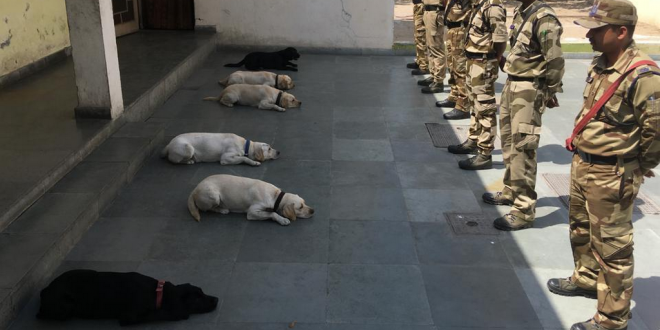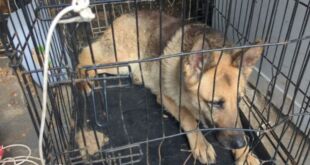The Central Industrial Security Force (CISF) has introduced a Labrador female dog squad for security on the Delhi Metro. All dogs have been inducted for the expansion of Phase-III network taking the number of dogs for Delhi Metro’s security to 60.
According to the CISF
Dogs play an important role in bomb detection because of their fast reaction time and because they are available for round-the-clock security. Though no bomb has ever been found in any Metro station in the city, the dogs have detected various unattended items on the platforms.
“Sections of the Magenta Line and the Pink Line have already been opened and these dogs are being deployed there. Though we have a variety of dogs, this time we preferred to get Labradors because of their superior sense of smell and because they can adjust to Delhi’s weather,” said a CISF officer posted in Delhi Metro.
They named new dogs- Nikki, Ruby, Stella, Alice, Maya and Heena. In a change from the usual procedure, the handlers were allowed to pick the names of their dogs.
“Earlier, the senior officers used to name the new dogs. However, the handlers form an attachment with their dog, so we have given them the opportunity to pick their names,” the officer said.
Dog training
The canines have undergone 6 months of training in bomb detection. The force will add another four dogs in the next 6 months and 12 more over the next year.
Once Delhi Metro’s Phase-III is fully operational, it will have 107 stations spanning over 159 kilometres, which will translate into addition of millions of passengers.
The CISF canine squad already has 17 German shepherds, 23 Labradors, 10 Cocker spaniels and two Golden retrievers.
Officials said German shepherds are good for drug detection, while the Labradors are well-suited for search and detection of bombs. Golden retrievers are good sniffer dogs and easy to train as they are obedient by nature. Cocker spaniels come in handy in searching under Metro seats due to their low height, the official added.
These dogs start their day at 7 a.m. and end at 11 p.m. and they work in four-hour shifts. The CISF has located its squads in a way that it would not take more than 15 minutes to reach any station on the network. Two dogs are kept in reserve for any emergency at night.
Reference: Hindustan Times
Share your thoughts with us in the comments below!

 DogExpress
DogExpress

















 in Chandigarh, India.
in Chandigarh, India. 
